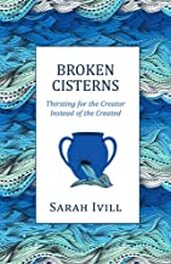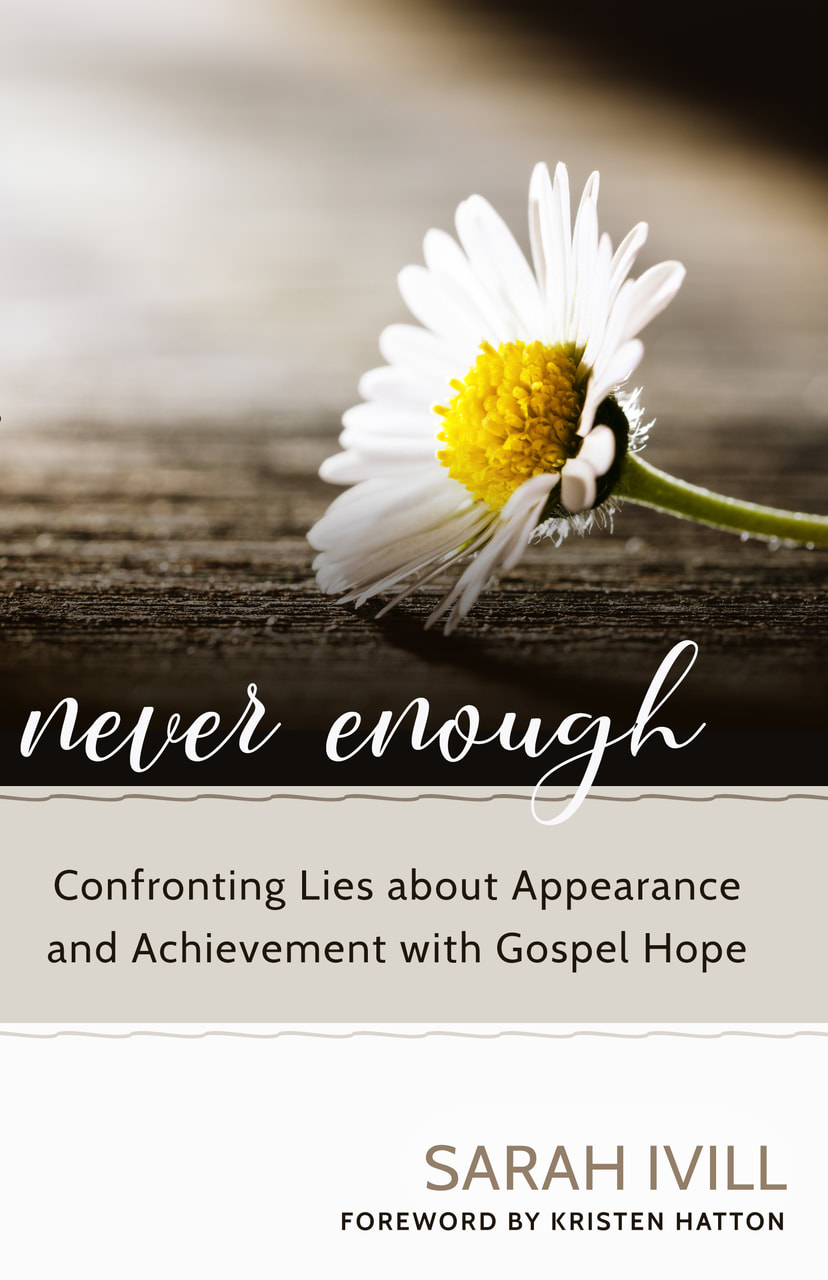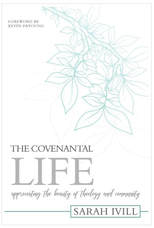|
(This article was first published on the Revive our Hearts Leader Connection Blog. See original link here.)
In the fall of 2017, a woman at my church who taught a Bible study asked if I would come and share my testimony with her class, composed mostly of young professionals. She had remembered reading in one of my Bible studies that I had battled an addiction to thinness and fitness, and she thought it would benefit the group to hear it. To be honest, I was nervous. I had been serving in women’s ministry for years, but my story of how God had rescued me from an addiction in my teens and early twenties had been relegated to a few short introductions in a book or Bible study I had written. I had never before gone back to my prayer journals from my younger years with the intention of speaking on the topic, much less writing a book about it. Yet as a result of the response I received from sharing my testimony, and after one of my pastor’s wives encouraged me that my testimony was something that needed to be heard in middle schools, high schools, and college campuses, as well as women’s Bible studies, I found myself, in God’s Providence, writing my story (God’s story) to the next generation, telling them about my addiction in order to help them, and those who ministered to them, confront lies about appearance and achievement with gospel hope. Comforting Others with the Comfort We’ve Received In some ways my story was easy for me to write. After all, it’s relatively simple to tell your own story. But in another sense the fact that it is my story also made it one of the hardest. I am not proud of the lies my flesh has been so prone to believe. And I’m not proud of the actions I’ve taken because of it. But God’s Word says, “Blessed be the God and Father of our Lord Jesus Christ, the Father of mercies and God of all comfort, who comforts us in all our affliction, so that we may be able to comfort those who are in any affliction, with the comfort with which we ourselves are comforted by God” (2 Cor. 1:3–4). My Story: Twin Lies About Beauty and Performance At the beginning of my sophomore year of high school, I was sitting around with my cross-country team listening to the older girls compare fat grams in bagel brands. Little did I know how influential that conversation, and many more like it, would become in my life. Add to that the billboards, magazines, and other media that boasted model-thin women all around me, and I bought into the lie “I have to look like ‘her’ in order to be beautiful.” In other words, I believed that my worth was based on my outward appearance. At the same time I was running cross-country, I was also playing basketball. Unlike the girls on my cross-country team, my teammates on my basketball team were not having conversations about fat grams in bagel brands. They could down a fast-food burger in no time at all and not think twice about it. And my coach certainly thought I could use a few burgers myself in order to put on some weight for my position as forward or center. There was another conversation going on though within basketball that was just as influential and just as damaging as the one on my cross-country team. It really wasn’t a conversation at all. It was a coach with a temper who could fire off a cuss word, stomp his feet, clap his hands, and throw water, attempting to motivate us to play better and harder. Failing to live up to his expectations and thinking my significance was based on success as he defined it led me to believe another lie: “My worth is based on my outward performance.” Failure to perform well led me to inflict punishment on myself, which matched perfectly with the motivation behind the other lie—if I didn’t live up to my coach’s expectations, then I didn’t deserve to eat. These twin themes of body image and performance are still at the heart of young women’s search for beauty and worth today. But it is not just young women. Women of all ages struggle with defining their significance by their appearance and achievements. God’s Intervention By the time I was in college, my addiction to thinness and fitness was raging. But God intervened. I still remember sitting in my Hebrew class during my final exam with tears streaming down my face as I translated the verses in Jonah 2:5–6 from Hebrew to English: The waters closed in over me to take my life; the deep surrounded me; weeds were wrapped about my head at the roots of the mountains. I went down to the land whose bars closed upon me forever; yet you brought up my life from the pit, O LORD my God. Deliverance would not come overnight, but this was a turning point for me. If the Lord could radically deliver Jonah from the pit he was in, then He could also deliver me from what seemed like a prison. The hope that I had not found in a secular counselor’s office, a support group for those battling addictions, or a nutritionist’s office I found in the Word of God. It cut through the lies and gave me truth upon which to stand. This would prove critical over the next few years as I fought for freedom from my addiction. Deliverance Through Battling Lies with Truth By the time I reached seminary, I really wanted my addiction to thinness and fitness to be over. I had recognized my sin of trying to serve two masters. I realized that fitness and food had become idols in my life. I knew this because I had to exercise and eat healthy every day in order to feel good about myself. I wouldn’t even miss exercise and healthy eating on a vacation because somewhere along the way I started relying on exercise and healthy eating for my hope and happiness, my significance and security. I remember keeping a journal in which I would write down every lie that came across my mind and counter it with a scriptural truth. For example, if I thought I looked fat, I challenged whether or not that was really true (it wasn’t), and then I moved on to passages that spoke of God looking at the heart instead of the outside of man (1 Sam. 16:7). At some point, I also stopped weighing myself, recognizing that it could lead me down a pathway of destruction. And I started bouncing my eyes off billboards and magazines, recognizing those could also lead me down a pathway of deceit. So I was striving hard to put this addiction behind me. And since seminary days were an immersion of studying Scripture, in God’s Providence I was at a great place for healing. Deliverance Through the Community of Believers But there was another dimension that was just as important as being immersed in truth, and that was being surrounded by the community of believers, some of whom I confided in regarding my addiction. This was helpful in numerous ways. First, I wasn’t fighting alone. Individuals make terrible armies. But I had a group of sisters fighting with me. Their prayers, accountability, and encouragement meant a great deal to me. Second, when I confessed my sin to the Lord and to my sisters, it didn’t seem to hold as much power over me. My sin was exposed. People knew. And in the publicity of it I began to see it for what it really was—lies I had believed. My worth isn’t based on my outward appearance. It is based on the person and work of Jesus Christ. And my worth isn’t based on my outward performance. It is based on the perfect performance of Christ on my behalf. The Truth Will Set You Free It is the gospel that set me free—and continues to set me free when I’m once again tempted to believe the lies. The Lord ingrained deeply in me the Truth that Christ is enough for me. In a culture where we often compliment external beauty, even in the Church, I needed someone to remind me that I’m not pretty apart from Christ, and no amount of makeovers or designer dresses will fix that. Apart from Christ, I am ugly and dead in my sins. I also needed someone to tell me that I will never perform perfectly and to seek perfection is futile. Christ alone is perfect. Knowing the truths that I didn’t have to be thin and fit to be loved; that I didn’t have to perform perfectly to be accepted; and that I am beautiful, loved, and accepted in Christ because Christ has performed perfectly and died for me was tremendously freeing. Women all around us are ensnared in lies about appearance and achievement. As we share our stories and struggles with them with the intent of magnifying God’s larger redemptive story, they often feel comfortable to share their own story. As they do, we can help them understand their story in light of God’s story, helping them see His providential hand in their life, and pointing them to the hope of the gospel. This can be intimidating for us, especially as leaders, but creating a culture within our ministry spheres that intentionally invites women to share their stories to magnify God’s story is crucial. Instead of disqualifying us from ministry, God’s grace and forgiveness in our lives is a door of opportunity for women to see the power of the gospel of Christ. *This article is adapted from the Introduction of Sarah Ivill’s book, Never Enough: Confronting Lies About Appearance and Achievement with Gospel Hope (Grand Rapids, MI: Reformation Heritage Books, 2019).
0 Comments
Your comment will be posted after it is approved.
Leave a Reply. |
Bible Studies & Books by
|










 RSS Feed
RSS Feed
